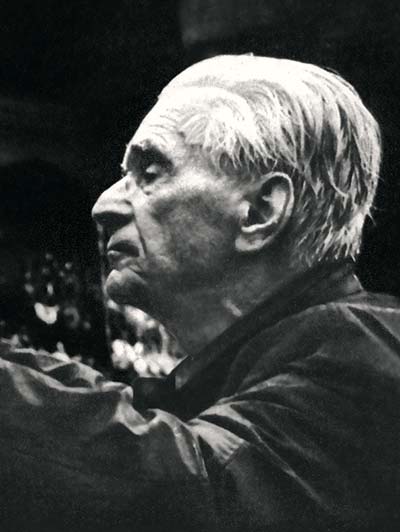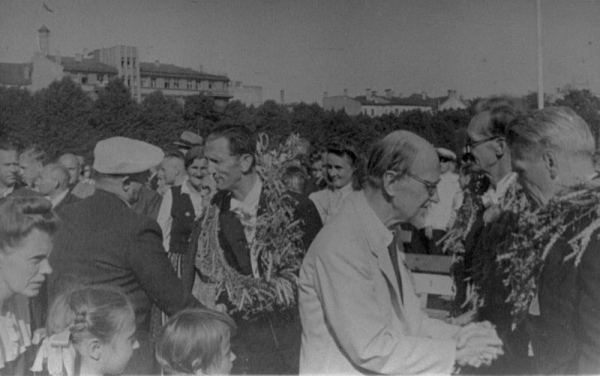Jēkabs Mediņš
1885–1971
Composer, conductor, educator, music critic, organist
One of the most prominent representatives of the unique Mediņš family in Latvian music.
Born on 22 March 1885 in Rīga, in the family of musician Juris Mediņš. Studied at Rīga’s Katrīna School (1900), mastering a number of instruments on his own. Received his professional musical education at the Rīga Music Institute (1903-1905), while playing in various orchestras conducted by his brother Jāzeps, trying his hand at arranging and conducting. Supplemented his professional knowledge at summer courses in Berlin (1911-1914).
Took his first serious steps as an educator as a lecturer in musical subjects, choir and orchestra leader at the Valmiera Teachers’ Seminary (1905-1917). During the First World War, escaped as a refugee to Syzran in Russia (1917-1919), where he worked as the director and teacher of the Syzran People’s Conservatory. After returning to his homeland, he worked as a music critic in the Latvijas Vēstnesisis newspaper and was the assistant of Jāzeps Vītols at the newly founded Conservatory of Latvia (1920-1921).
Moving to live in Jelgava, became organiser of the Jelgava music scene – worked as director and educator at the Jelgava People’s Conservatory (1921-1941), from 1930 was also the head of the Jelgava Philharmonic, in parallel music teacher at the Jelgava Teachers’ Institute (1921-1944) and organist at Jelgava’s St Anna’s and Holy Trinity Church. The singing curriculum written by Mediņš was approved as a model for singing lessons throughout Latvia (1924), but his solfège textbooks have become a much-appreciated teaching aid in music schools.
In 1940, worked as the head of the Music Department at the Arts Department (1940-1941), but from 1947 was a lecturer at the Latvian State Conservatory and founder of its Choir Conducting Department (1944-1950), later also taking over the rector’s duties (1948-1950).
Also willingly took on public activity – from 1944 was an active official of the Music Foundation and the Latvian Composers’ Union, later also the Union’s board chairman (1948-1950). Was singing teacher at Rīga Secondary School No 3 and initiated the creation of the Boys’ Choir Department at Emīls Dārziņš Special Music School, where he worked as an educator (1950-1951).
br>
Was a chief conductor at the Xth, XIth and XIIth All-Latvian Song and Dance Festivals and Honorary chief conductor at the XIIIth, XIVth and XVth All-Latvian Song and Dance Festivals. Also conductor and chief conductor of countless district song festivals.
Composed eleven concertos for different solo instruments, vocal and instrumental chamber music, symphonic miniatures and about 130 arrangements of Latvian folk songs.
Commander, Order of the Three Stars (1930), Latvian SSR Order of Honour for artistic endeavours (1945) and People’s Artist of the Latvian SSR (1960).















